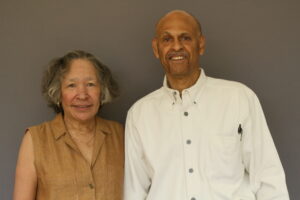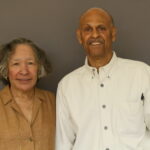Description
Husband and wife, Gloria Pillow (75) and Thomas Pillow (76), reflect on being a part of the last generation to attend segregated schools in Nashville, Tennessee. They speak fondly of their experience at their all-Black high school, Cameron.Participants
- Gloria Pillow
- Thomas Pillow


